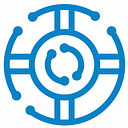Three Pillars of the Metropolis Global Vision for Digital Nations
Our mission is to create a more open world with more personal and economic freedom by providing global citizens with universal access to Digital Nations — countries existing in the digital space with physical sovereignties as anchors.
We are in pursuit of this vision in order to empower anyone who participates in a future digital nation, to have more freedoms and capabilities in their personal and business lives, and to find the space they need to flourish. The following three pillars form the foundation of our approach to ensuring a future world that best achieves this vision, and with success in these areas, there is no limit for what can be achieved.
Pillar I — Digital Nations Platform — “Universal Access”
First, we are building a platform to support the development of digital nations. The platform is designed to provide a secure, trusted environment for citizens and businesses to access government products and services outside their home country. The platform will enable digital nations to offer a wide range of digital products and services to their citizens.
Pillar II — Bridging to the Physical World — “Digital Property & Access Rights”
While many use cases can be replicated or even improved through a digitally native platform, we intend to go beyond and bridge these new systems back to the physical world and to tangible, high-value use cases with real world utility and benefits. We are experimenting with new forms of digital asset ownership tied to real-world property and physical spaces, and with connecting those access rights to physical space, bridging these digital rights into the physical world. We will leverage NFTs and other technologies, combined with legal frameworks to support these endeavors.
Pillar III — Digital Nations Alliance — “Maximizing Choice”
We are creating a network of partners and like-minded digital nations with a shared vision of freedom for global citizens. These will include those traditionally recognized by the United Nations, as well as emerging network states and other sovereign communities.
Part of the pathway to more choice for global citizens should include greater recognition for sovereign communities that have built trust, and we believe that traditional countries can also leverage some of the learnings from innovative governance models that are experimented with by these more experimental states.
We will establish mechanisms to encourage participants to adopt good practices, and by having a geographically distributed, alternative governance network, we expect the collective power of the network to grow over time.
Conclusion
We believe that this approach will help us achieve our goals by first creating a flagship digital platform with an intuitive and replicable user experience for individuals, with enhanced portability and choices among jurisdictions with direct pathways to introduce their products and solutions. Second, we intend to connect this digital platform and its global networks of users into the physical world through digital property rights and access rights to zones, cities, and sovereign states in order to expand the real world utility offered via the network over time. Finally, we are building collective strength among digital nations and sovereign partners to enhance their global mindshare, to create common standards and interoperability, and to expand recognition and trust among these partners.
